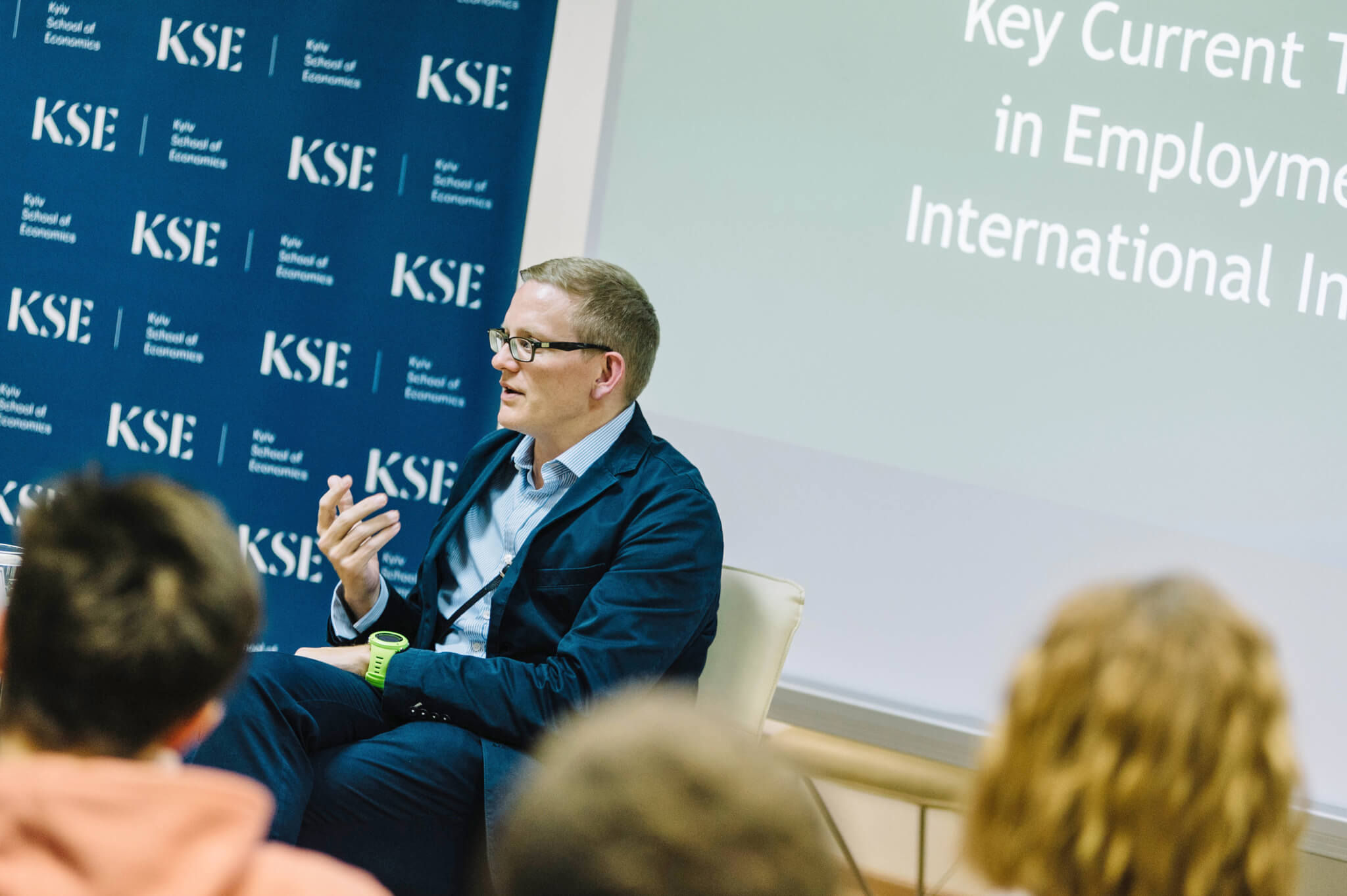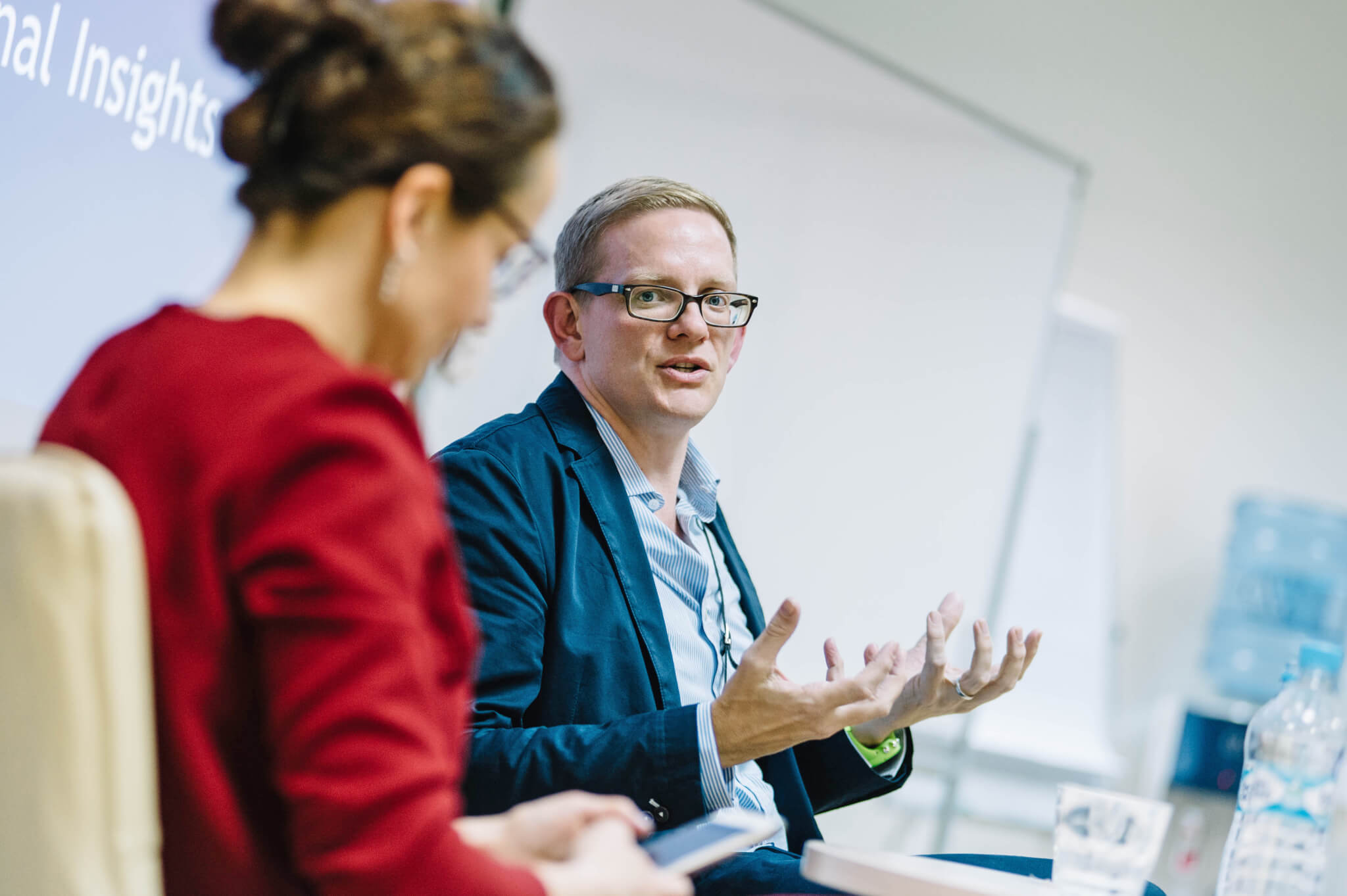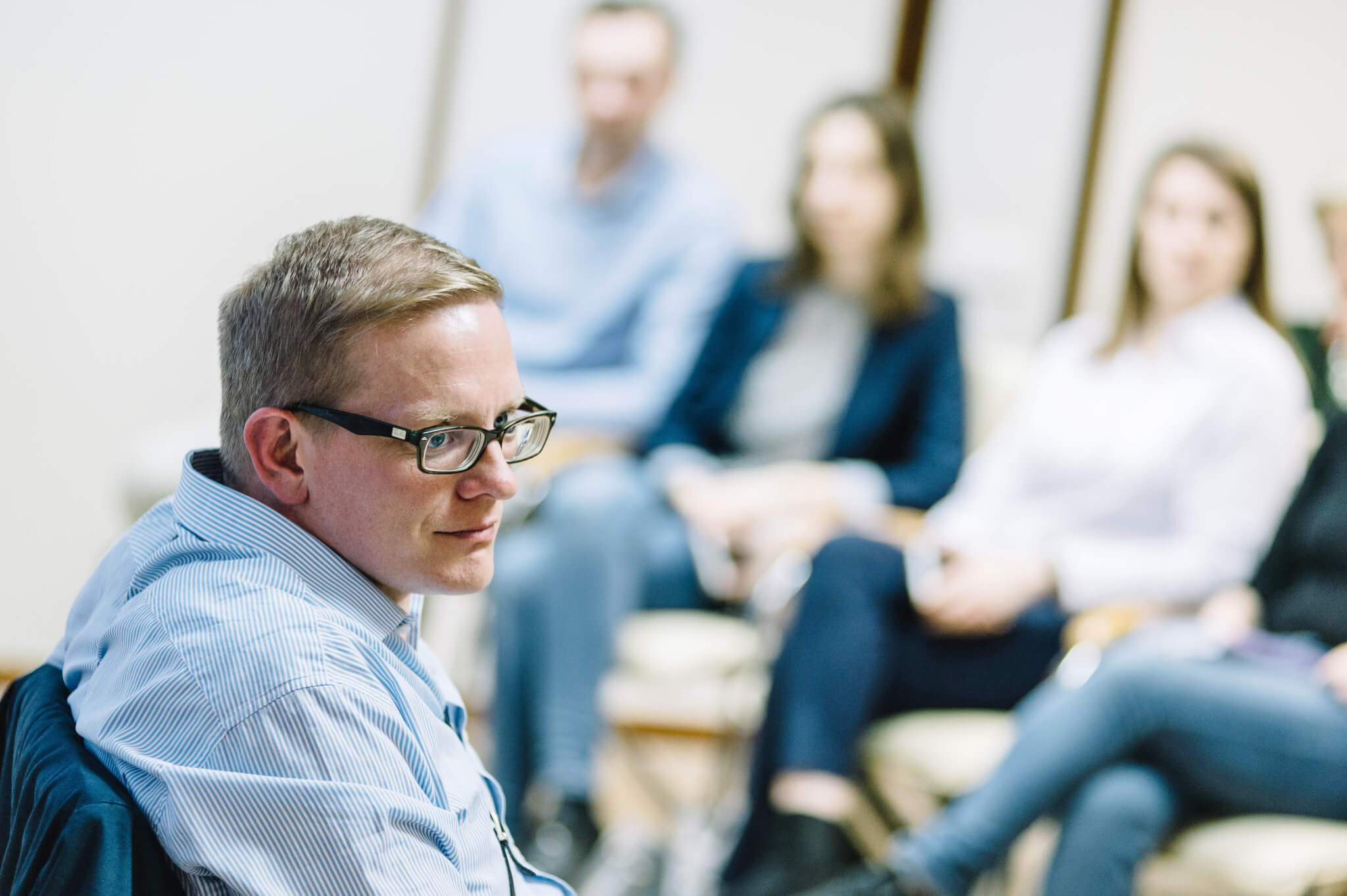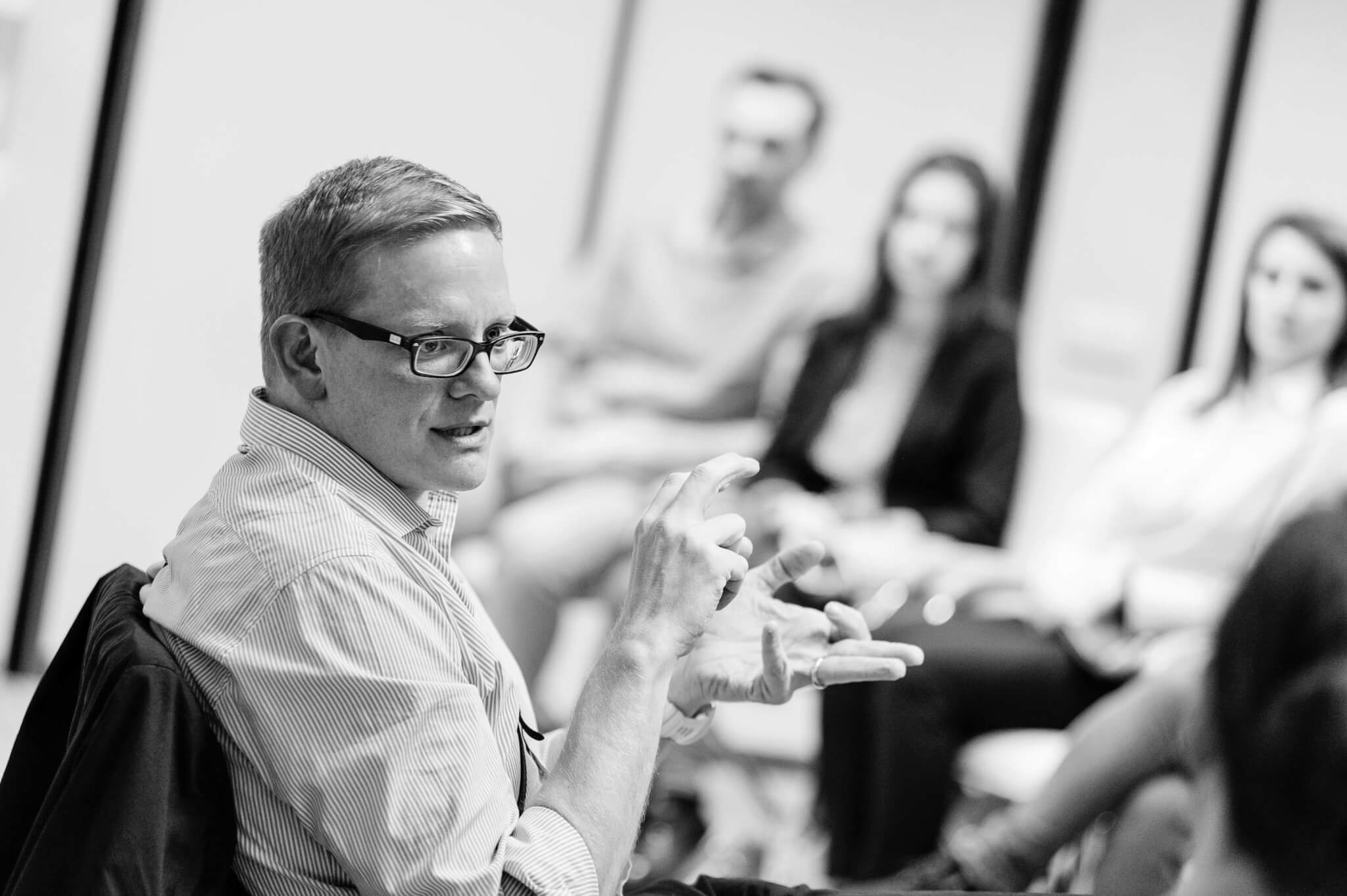- Kyiv School of Economics
- People
- Stories
- Visa Series: Five HR-Trends by Jeremy Broome
Globalization
Globalization has a big impact on a company, access to labor and knowledge — not so long ago companies got an access to a global talent base and the ability to outsource work. We are bringing talents from around the world: from Singapore to San Francisco. We as Visa would have no problem to bring top technical person to our HQ in SF from around the world. The companies are trying to get rid of wage gap between countries. In 1980s–1990s the difference of cost between the US and, for example, India was about 20 percent of the price. That was the reason for companies to take expensive work from the US and bring it to cheaper places. Now it’s a blowback, we see wage compression between developed and undeveloped economies.

Life expectancy
Because of healthcare program, life expectancy in Europe and US is about 80 years. So the employment model has been changed. We bring a person to the company at the age of 25, engage him / her to work by paying, rewarding. We create progression by pulling from the top and bringing from the bottom. Young people have big expectations when coming to a company but still other more experienced people will not volunteered to retire at the age of 55–60.
In 1950–1960`s in the family one person used to work a lot while the other took care of kids, housework. Now this model have changed and people rarely work classic 5 days a week. Such things as work from home allow to split the responsibilities equally between family members. There are different employment models in such places like Uber or AirBnb but still we need some people to seat at the desk from 9 AM till 6 PM.

Technologies
People are changing as the technologies are transforming the way our companies operate. ML, AI, etc replace people as a labor. Labor disappears, it gets replaced by technologies. What you learn at university in 5 years can equally redundant. There is an issue that jobs would not be replaced by other jobs. But jobs would be replaced by robots. And this is something to think about.
Technologies affect every single person in organization. My Dad, he is 75 and I`m communicating with him with my phone. I don’t expect to do it with fax machine or something else. The speed of information is the speed of decision making. Not only millennials but everybody expects that today, right?

Corporate culture
HR in companies is a diversity. I know companies in which HR departments do nothing but payroll, write contracts and so on. On the other side, there are companies where HR is a person who understands and loves human talent capability. Much more important is not what you do but how you do this. The most important is the ability to bring a team together, to inspire as a leader, to use soft skills. Top three priorities for HR: leadership, talent and culture. That’s when Chief HR-officer works together with the CEO.
Expectations of people in the workflow, that’s where you might have very big differences. When I quit Deutsche Bank, my Dad called me and asked «Why did you leave? You had a safe job, they paid you well. Why you`re gonna take the risk on that?». I said «Well, it just came…». There was just no comprehension why I would leave a safe job and go somewhere else.
The most fundamental thing about making people happy is asking them what they want.
Any experience is a good experience. If you take a job for experience and leave it in 12 month, nobody would care. Nowadays, HR would rather be surprised if a person used to work at the same job for five or ten years. No experience is bad experience.

Climate change
The impact of climate change on labor market comes from its impact on movement of humans around the world. Yes, you`ve got migration of people because of war, conflicts, political instability. But now we can see more and more migration because of climate change and this creates pressure on countries, political and education systems.
I also think that climate change has impact on companys’ needs. People in Singapore are now doing jobs I`ve never heard of before. For example, they work on airflows on the street or on creating shadows to buildings to keep the air temperature down. These jobs didn’t exist a few years ago, right?
